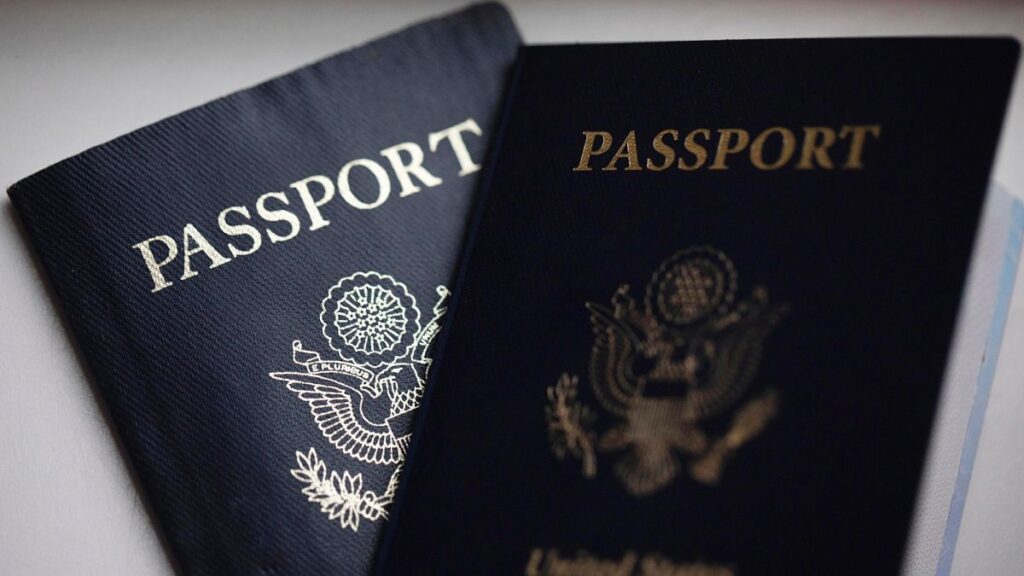Published on
The world’s most powerful passports have been revealed – and while it’s good news for the EU, the US has suffered a huge blow.
More than 25 European countries remain in the top 10 position of the Henley Passport Index, outranked only by a trifecta of Asian nations.
However, for the first-time in 20 years, the US no longer ranks in the top 10, while the UK has also plummeted to an all-time low.
Which country has the world’s most powerful passport?
Using data from the International Air Transport Association (AITA), the Henley Passport Index ranks the world’s passports based on the number of destinations their holders can enter without a prior visa.
Singapore came out victorious with visa-free accessto an impressive 193 destinations, shortly followed by South Korea (190) and Japan (189).
EU nations continued to dominate the tables, while the UK also dropped to its lowest-ever position on the index – slipping from 6th place to 8th place.
- Singapore
- South Korea
- Japan
- Germany, Italy, Luxembourg, Spain and Switzerland
- Austria, Belgium, Denmark, Finland, France, Ireland and the Netherlands
- Greece, Hungary, New Zealand, Norway, Portugal and Sweden
- Australia, Czechia, Malta and Poland
- Croatia, Estonia, Slovakia, Slovenia, United Arab Emirates and the United Kingdom
- Canada
- Latvia and Liechtenstein
American passport holders can currently access 180 destinations visa-free. As a result, the country has dropped joint 12th on the index, tied with Malaysia.
The blow comes after President Donald Trump unleashed a widespread visa suspension to travellers from 12 nations, imposed heavy restrictions on seven more and threatened dozens of countries with bans.
The US itself only allows 46 other nationalities to enter without a visa, putting the nation in 77th place on the Henley Openness Index, which ranks 199 countries and territories worldwide according to the number of nationalities they permit entry to without a prior visa.
A ‘fundamental shift in global mobility’
Dr Christian H. Kaelin, chairman of Henley & Partners and creator of the Henley Passport Index, argues that while these changes may seem small they have “outsized consequences”.
“The declining strength of the US passport over the past decade is more than a reshuffle in rankings – it signals a fundamental shift in global mobility and soft power dynamics,” he says.
Dr Kaelin adds that nations that “embrace openness and cooperation” are surging in the rankings, while those reliant on “past privilege” are being left behind.
China’s boosted passport power
China has witnessed the biggest boost in passport power, climbing from 94th place in 2015 to 64th in 2025 as visa-free access has increased to include 37 more destinations during the decade.
In the past year alone, China has granted visa-free access to an additional 30 countries. This means it now sits at 65th position on the Henley Openness Index.
“Trump’s return to power has brought fresh trade conflicts that weaken America’s mobility, while China’s strategic openness boosts its global influence,” says Dr Tim Klatte, partner at Grant Thornton China.
“These diverging paths will reshape economic and travel dynamics worldwide.”
‘The new American dream’
Henley & Partners suggests the decline in US passport power is fuelling an “unprecedented surge” in demand for alternative residence and citizenship options.
Data shows that Americans have now become the largest group of applicants for investment migration programs in 2025. By the end of Q3, applications from US nationals were already 67 per cent higher than the total for 2024.
Professor Peter J Spiro of Temple University Law School says in the coming years more Americans will be trying to gain additional citizenship in whatever way they can.
“Multiple citizenship is being normalised in American society. While it may be a bit of an exaggeration, as one social media poster recently put it, ‘dual citizenship is the new American dream’,” he adds.
Read the full article here


